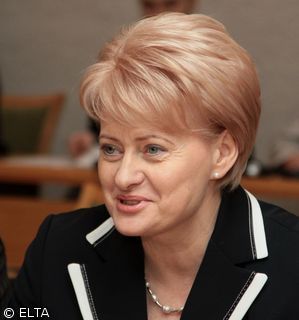Interview with an expert in Information Technologies Mudrik Dadashov
Published:
2 May 2001 y., Wednesday
It is frequently being spoken and frequently written about monopoly of “Lietuvos telekomas”. From time to time director of the company T. Paarma answers to different reproaches by “good works”; for instance, cuts the tariffs for international calls confirming that monopoly is useful. According to the plan of “Lietuvos telekomas” (LT) Internet services supply is the area that should be paid particular attention. For that purpose special Department “Takas” was established. LT has made a significant step by offering new service - 99 Lt. monthly payment for unlimited usage of Internet in off-peak hours (6 p.m. till 7 a.m.). Perhaps this is the first action of LT that has causes so many discussions and controversial opinions. We have asked Mudrik Dadashov, director of Internet services providing company “Euneta”, to comment upon this event.
- From consumers’ point of view this action can obviously be considered as positive because it reduces price for Internet services. But what concerns other companies, which are engaged in this business, considering development perspective, justice and legality this is a clear example of monopoly.
Price for Internet services consists of two parts: the first is for Internet product the company provides (information plus connection to Internet), the second is connection itself that lets presence in the network be possible. And this is the second part that has greater monetary value – because it is an ordinary telephone connection; consumer pays for every minute. And LT has got monopoly for this service. And efforts of companies which provide Internet services are of no significance as the only thing they can do is reduce their part of price.
- Seems that companies, which provide Internet services are obliged to work for LT, to search clients for them?
- Yes, it appears to be so and this is attractive about monopoly. Having applied tariffs LT gets absolutely rid of competitors because they have the following alternative only: either to loose the clients as it is impossible to compete under such conditions, or simply to become LT services agents and agree with any conditions. LT has already found such an agent – “Delfi”. As far as I know, “Delfi” gives 95% of its profit to LT. Now it is being negotiated with the other companies.
- Do you think they’ll consent to cooperate? Or all of them will resist?
- It is hard for me to tell. I’m afraid there will be no organized opposition. Because Internet is not a primary activity for majority of the companies; and they will not want to break relations or waste their time for struggling with LT. I must emphasize we’ve got a reason to bring an action against LT. While intruding into Internet LT infringes contract conditions according to which it has got monopoly for telephone connection only. LT treats the law at its own choosing while mechanically combining two absolutely different services – Internet and telephony, and treating them as a single service. According to the rules LT should have act in this way: define a tariff for telephone connection while using Internet; and this tariff should have been same for everyone. And depending on the number of clients the firm has got and on the amount of profit, the prices could have been reduced. Then conditions could have been same for everyone.
- What is the attitude of authorities?
- In the Seimas and in Competition Council we find understanding and sympathy. This problem is already being discussed. Unfortunately, the Government does not participate in these discussions and it seems that Communication and Informatics Department is a subsidiary of Telekomas. When you come to them they behave as they keep mum.
- Are there any ways out?
- There is one strategic solution – competition. In the future this is mobile communication development, when with the arrival of the third operator significant fall in prices is expected. As soon as the prices become the same or become less than for the ordinary telephone connection, then Telekomas will have no place to hide.
- But until then LT will loose its rights, will it?
- I don’t think so. According to my observations, creating various structures inside and outside, LT gets its teeth into Lithuania so that later it’ll be impossible to root it out. There is a threat that during the period of time left LT will seize the market so that even during the absence of formal monopoly it will have monopoly. Certainly if the government doesn’t promote efficient competition. It’s pity, my forecast in the year 1997 has proved out.
Copying, publishing, announcing any information from the News.lt portal without written permission of News.lt editorial office is prohibited.
The most popular articles
 You can now access books, journals, films, maps etc from across Europe via the EU's online library, Europeana.
more »
You can now access books, journals, films, maps etc from across Europe via the EU's online library, Europeana.
more »
 Late night chat turned serious when comedian David Letterman admitted he had sex with female employees and was being blackmailed for $2-million (USD) over the affairs.
more »
Late night chat turned serious when comedian David Letterman admitted he had sex with female employees and was being blackmailed for $2-million (USD) over the affairs.
more »
 Last Thursday (1 October) saw an agreement that will lead to the introduction of more efficient tyres for cars and lorries that will cut fuel bills and CO2 emissions.
more »
Last Thursday (1 October) saw an agreement that will lead to the introduction of more efficient tyres for cars and lorries that will cut fuel bills and CO2 emissions.
more »
 The European Job Days are taking place around the EU over the next fortnight, with a centrepiece event in Brussels on 3 October.
more »
The European Job Days are taking place around the EU over the next fortnight, with a centrepiece event in Brussels on 3 October.
more »
 Women, especially migrant and/or poor women, have been harder hit by the financial crisis than men, MEPs heard on Wednesday.
more »
Women, especially migrant and/or poor women, have been harder hit by the financial crisis than men, MEPs heard on Wednesday.
more »
 New EU plan to make local transport efficient and sustainable.
more »
New EU plan to make local transport efficient and sustainable.
more »
 Hollywood heavyweights and European cultural figures are rallying behind jailed film director Roman Polanski.
more »
Hollywood heavyweights and European cultural figures are rallying behind jailed film director Roman Polanski.
more »
 By the time of his death in the Moscow winter 20 years ago, Andrei Sakharov had built an international reputation as a nuclear physicist, human rights activist and Nobel Peace Prize winner His fears over the implications of his work led him to call for peaceful coexistence and later for human rights in the USSR.
more »
By the time of his death in the Moscow winter 20 years ago, Andrei Sakharov had built an international reputation as a nuclear physicist, human rights activist and Nobel Peace Prize winner His fears over the implications of his work led him to call for peaceful coexistence and later for human rights in the USSR.
more »
 The ten nominations for this year's Sakharov Prize, the EP's prize for defenders of human rights and democracy, have now been put forward and will be officially presented at the end of the month.
more »
The ten nominations for this year's Sakharov Prize, the EP's prize for defenders of human rights and democracy, have now been put forward and will be officially presented at the end of the month.
more »
 President of the Republic of Lithuania Dalia Grybauskaitė attended a meeting hosted by the President of Liberia Ellen Johnson-Sirleaf and the President of Finland Tarja Halonen on Peace and Security through Women's Leadership.
more »
President of the Republic of Lithuania Dalia Grybauskaitė attended a meeting hosted by the President of Liberia Ellen Johnson-Sirleaf and the President of Finland Tarja Halonen on Peace and Security through Women's Leadership.
more »